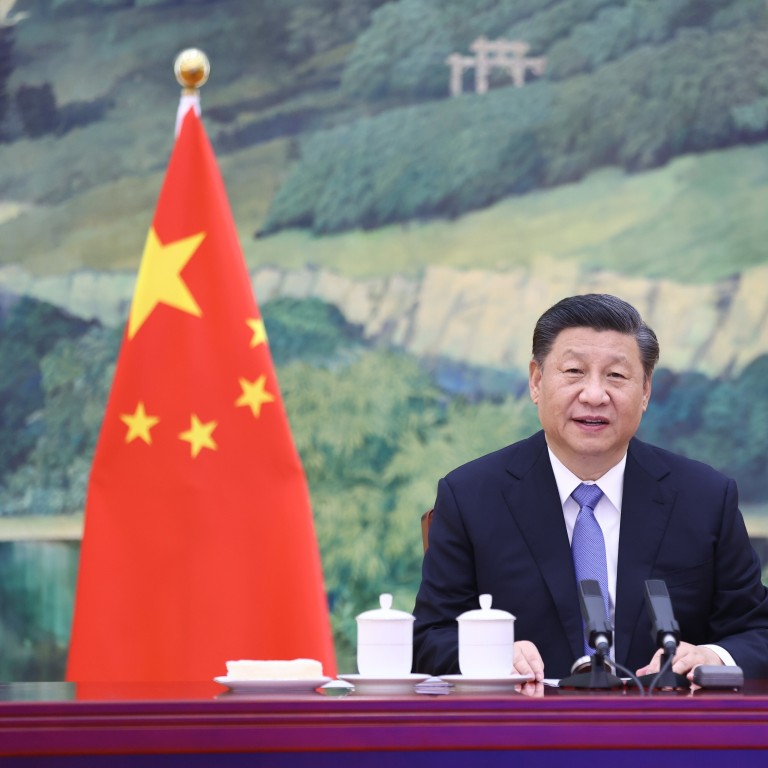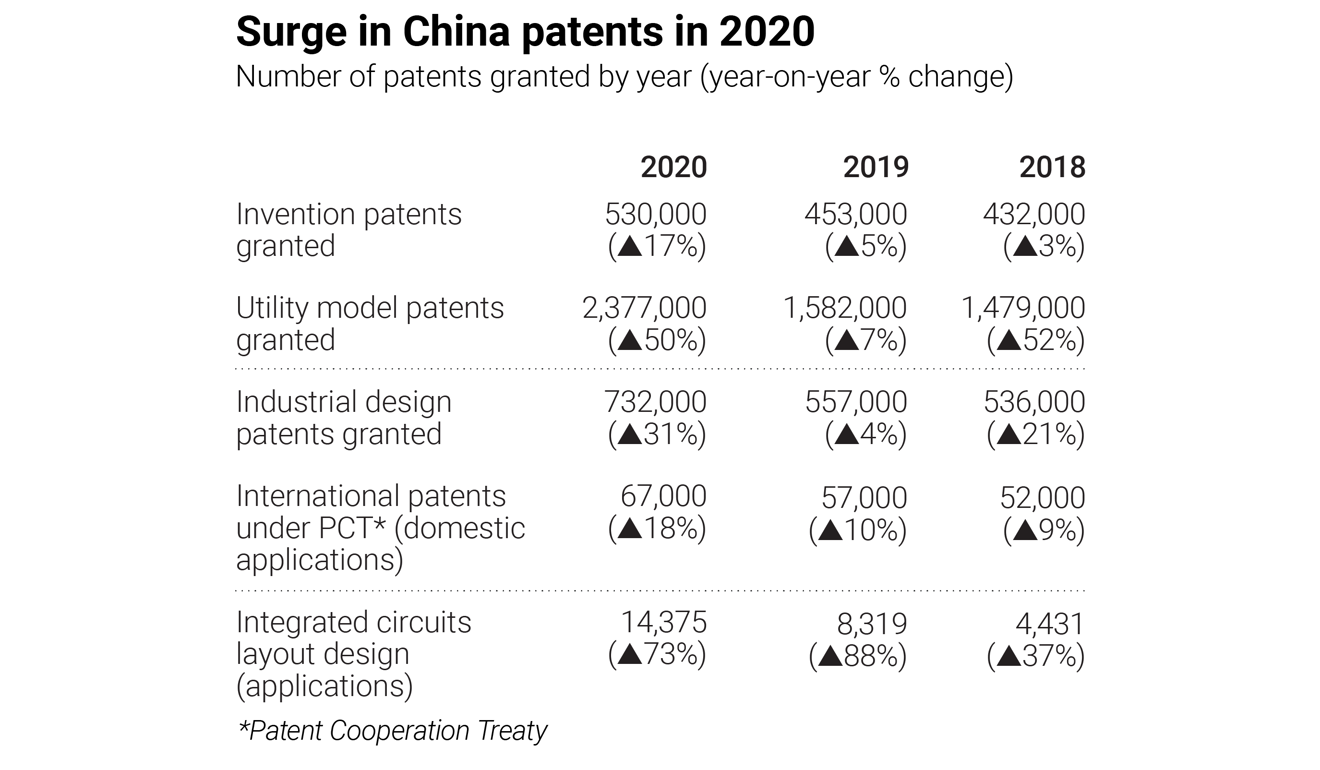
Chinese President Xi Jinping says intellectual property protection is key part of country’s development plans
- Pledge to strengthen protections at home and abroad comes as Beijing seeks to encourage innovation as core part of growth strategy
- Xi tells Politburo meeting that stronger laws will help protect national security as well as improving business environment
He also said Beijing will also curb anticompetitive activities at home and abroad and support fairer global intellectual property governance, according to a newly released transcript of a speech he made to a Politburo “group learning session” in November.
Beijing is also alarmed by the export ban on technology imposed by the Donald Trump administration, which has highlighted Beijing’s vulnerability when relying on others for critical technology.
How China’s plan to boost innovation could benefit Greater Bay Area research
Xi said cadres should see intellectual property protection as a “national strategy”, adding: “Intellectual property is the core factor of global competitiveness and has become a focus of many international disputes. We should dare to fight and fight well. We shall never give up our legitimate rights and national core interests.”
In the speech, published in the latest issue of the Communist Party journal Qiushi or Seeking Truth, Xi told the cadres to crack down on intellectual property violations and overcome local protectionism.
“We can only improve our business environment and elevate the opening up of our country to a higher level and quality if we strictly enforce IP protection,” Xi told the meeting, adding that the protection of intellectual property is also key to safeguarding China’s national security and home-grown core technologies.
The number of patent applications filed in China has grown steadily in recent years.
According to China’s National Intellectual Property Administration, more than 530,000 patents were approved in 2020, up 17 per cent from the previous year.

In particular, filings to the patent office for integrated circuit layout designs – essential for chip design and production – grew by 73 per cent last year in spite of the US technology ban from the US and the Covid-19 pandemic.
However, Xi acknowledged that high-quality and high-value innovation still accounted for a small portion of the overall total, and warned that intellectual property protection at home was being outpaced by the rapid growth of new technologies and businesses.
He also said there was much to do to protect Chinese firms’ intellectual property abroad, saying many businesses lacked the capabilities to defend themselves.
Xi said China need to introduce proper and effective legal measures against monopolistic or anti-competitive activities in relation to intellectual property rights.
China committed to opening economy, despite push for self-reliance: Liu He
In addition, he said, China needs to strengthen its laws covering areas such as artificial intelligence and genetic engineering, and strengthen law enforcement and adjudication in intellectual property cases.
The journal also carried an article by the head of the National Intellectual Property Administration Shen Changgu, who said the agency would accelerate plans to set up an overseas centre to resolve intellectual property disputes and strengthen its early warning service for possible risks abroad.
Shen also said China will accelerate the process to join The Hague Agreement on the international registration of industrial designs. A new amendment to the country’s Patent Law will come into effect on June 1, extending the design patent from 10 years to 15 years to comply with The Hague Agreement.

